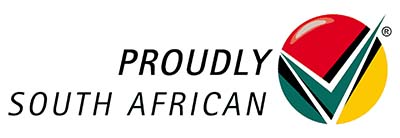There’s a strong and positive link between thorough reconciliation and positive audit outcomes. Here’s how:
- Improved Data Accuracy
- Enhanced Transparency
- Early Detection of Issues
- Reduced Audit Scope and Costs
Today, let’s delve into the dynamic relationship between reconciliation and audit outcomes.
The Link Between Reconciliation And Audit Outcomes EXplained
There’s a strong and positive link between thorough reconciliation and positive audit outcomes. Here’s how:
- Improved Data Accuracy: Reconciliation involves comparing and aligning data from different sources, ensuring its accuracy and completeness. This reduces the risk of errors and discrepancies that could raise red flags during an audit.
- Enhanced Transparency: Robust reconciliation processes promote transparency within an organization’s financial records. Auditors can easily trace transactions and understand the flow of funds, leading to a smoother and more efficient audit process.
- Early Detection of Issues: Regular reconciliation can proactively identify discrepancies and potential control weaknesses before they snowball into major problems. This allows for timely corrective action, mitigating risks and preventing material misstatements in financial statements.
- Reduced Audit Scope and Costs: When auditors find clean and reconciled records, they may need to perform fewer tests and procedures, leading to a less time-consuming and expensive audit. Additionally, demonstrating strong internal controls through meticulous reconciliation practices can potentially lead to a lower audit risk assessment and less intrusive audit procedures.
- Increased Confidence and Credibility: Consistent and accurate reconciliations foster confidence in the organization’s financial reporting and internal controls. This can enhance its credibility with stakeholders, including investors, regulators, and lenders.
How Reconciliation Impacts Different Areas Of An Audit
- Bank reconciliations: Ensuring bank statements match internal records verifies cash receipts and disbursements, preventing potential fraud or missing transactions.
- Inventory reconciliations: Reconciling physical inventory counts with inventory records minimizes discrepancies and ensures accurate valuation of assets.
- Accounts payable and receivable reconciliations: Reconciling these accounts helps identify unpaid bills, outstanding customer receivables, and potential errors in billing or payment processing.
Overall, effective reconciliation practices play a crucial role in supporting positive audit outcomes by ensuring data accuracy, transparency, and timely identification of potential issues.
This ultimately leads to improved financial reporting, increased stakeholder confidence, and potentially reduced audit costs.
Challenges and Solutions
While thorough reconciliation offers significant benefits for audit outcomes, there are also challenges that can weaken its effectiveness:
Challenges:
- Manual Processes: Many organizations still rely on manual reconciliation methods, which are prone to human error and time-consuming, ultimately reducing accuracy and efficiency.
- Data Silos: Data fragmentation across different systems and departments can create inconsistencies and make it difficult to compare and reconcile records accurately.
- Lack of Automation: Limited automation in reconciliation processes can lead to delays, inaccuracies, and missed discrepancies.
- Insufficient Resources: Organizations may lack the personnel or expertise to adequately maintain and execute comprehensive reconciliation procedures.
- Change Management: Implementing new reconciliation technologies or processes can be met with resistance, requiring effective change management strategies.
Solutions:
- Investing in Automation: Automating reconciliation tasks through workflow systems and data integration tools can significantly improve accuracy, speed, and efficiency.
- Data Governance: Establishing clear data ownership, standardization, and quality control measures across systems can address data silos and inconsistencies.
- Continuous Improvement: Regularly reviewing and optimizing reconciliation processes can identify and address inefficiencies and ensure ongoing effectiveness.
- Training and Personnel Development: Ensuring adequate training and expertise within the organization regarding reconciliation procedures and best practices can enhance accuracy and compliance.
- Clear Communication and Change Management: Transparent communication and stakeholder engagement during the implementation of new reconciliation processes can foster buy-in and minimize resistance.
Conclusion
In the grand South African symphony of finance, reconciliation isn’t a solo act; it’s the conductor orchestrating a harmonious melody of trust, transparency, and accountability.
As we bid adieu, let’s not just talk about it but be part of this transformative journey, where reconciliation isn’t just a link between numbers but a bridge to a brighter financial future.








